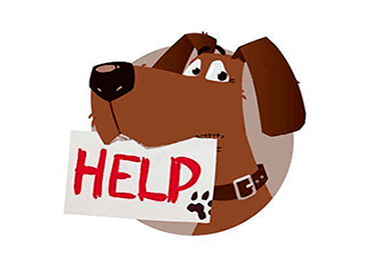Diseases of pets >>>> Pet helminths
Pet helminths.

Helminthiases are frequent companions of a pet. Infection with helminths can occur due to the eaten piece of infected fish or meat, food from the floor, or from the ground of garbage, as well as licking paws that have passed through dust from outdoor shoes or contact with infected insects (flies, fleas, lice). Do not rely on the fact that if the animal is not walked on the street, then it will not become infected with worms.
Helminths in a pet cannot always be determined by the appearance of feces, the larvae and eggs of helminths can be so small that they are indistinguishable by the human eye, and the developmental cycle of some helminths does not provide for their release together with feces. But according to the general condition of the pet, you can understand that he has helminthiasis.
The signs of helminthiasis in an pet are manifested in weight loss, despite good feeding, because helminths take up nutrients in large quantities. With helminthiasis, the anus of the pet can be irritated, and he will become more active in caring for him, trying to bite, lick. This sign is also worth paying attention to. An animal infected with helminths may experience diarrhea, blood in the stool, vomiting, general weakness, and cough (if the lungs are affected).
Some types of helminths can disrupt the integrity of the intestinal walls, spread with the blood to various organs and there, reaching maturity, injure the surrounding tissues. Often, helminths multiply in such large numbers within the intestine that they form congestion in certain parts of the intestine, which interferes with the movement of food through the intestines, disrupts peristalsis, leads to rupture of the intestinal walls, internal bleeding, which threatens the death of the pet.
Helminthiasis in an animal is always harder to treat than to prevent. Therefore, cubs - pets need to carry out prophylactic deworming at the age of three weeks in dogs and six weeks in cats, then every two weeks before the vaccine. Deworming is carried out with anthelmintic drugs, which are added to food.
After vaccination, deworming of animals is carried out every three months, but two weeks before the next vaccination. Anthelmintic drugs for animals are available in drops and tablets. Tablets are more effective in the fight against worms. The dosage of the drug is calculated in relation to the weight of the animal, which must be determined on the day of the first administration of the drug.
In the treatment of helminthiasis, feces are analyzed, which makes it possible to determine which parasite has settled in the body of the animal. Then, adequate therapy is prescribed, which is carried out in coordination with the veterinarian. Many drugs that expel worms from the intestines can provoke massive death of worms and poisoning of a pet with toxins, which must be taken into account. In such cases, cleansing enemas are made, detoxification is carried out using droppers with saline solutions to maintain water and electrolyte balance and quickly remove toxic substances from the animal's body.

Read

Read



























